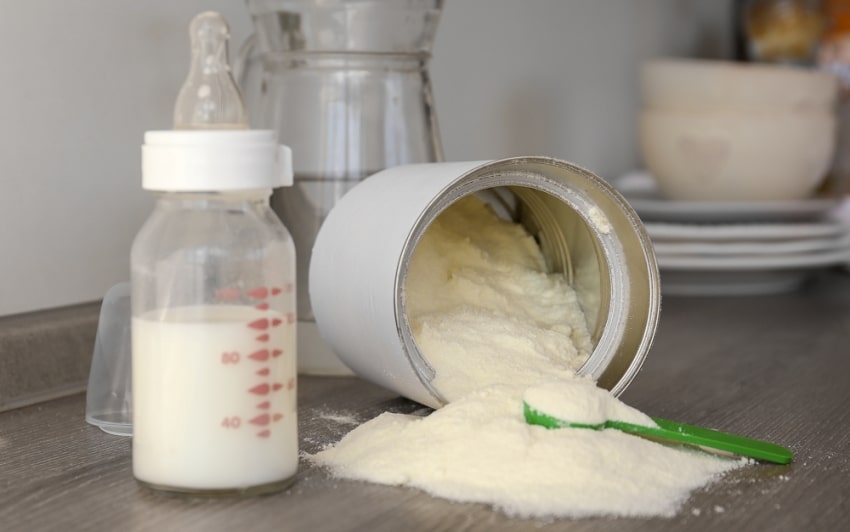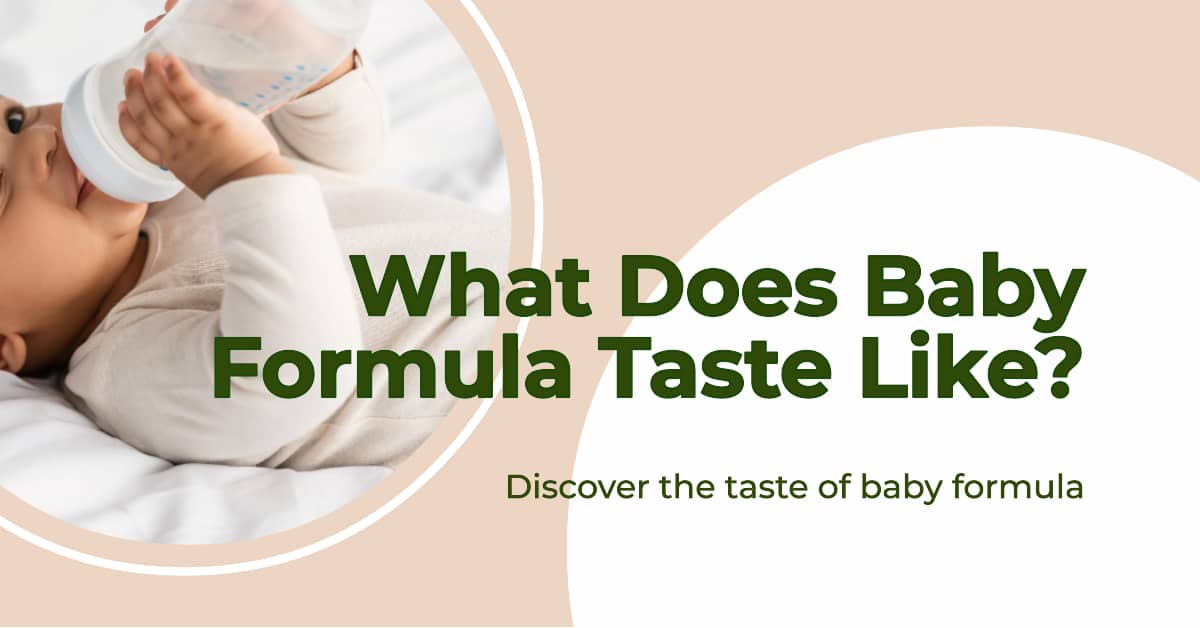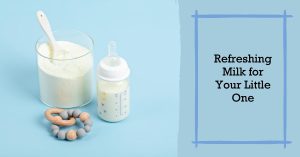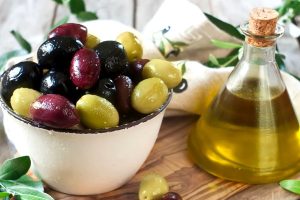Many parent often get curious about what does baby formula Taste Like? Baby formula typically has a slightly sweet and milky taste. It can vary in flavor depending on the type of formula you are using. Soy-based formulas tend to have a nuttier, almost cereal-like flavor while cow’s milk formulas usually have a more traditional “milk” taste with a slight hint of sweetness.
Some baby formulas also contain probiotics which may give them an additional mild sour or tangy flavor. As babies get used to drinking their formula, they often develop a preference for the particular brand and variety they drink most frequently due to its familiar flavors and tastes.
Baby formula is designed to provide infants all of the necessary nutrients, vitamins and minerals that they need for healthy growth and development. While it might not be as tasty as other foods, baby formula does have a distinctive taste. Generally speaking, it has a slightly sweet flavor with an aftertaste similar to cooked cereal grains.
Most parents agree that babies do not seem to mind the taste of baby formula – so feeding time should be relatively stress-free!
Why Does Baby Formula Taste Like Metal
Baby formula can sometimes taste like metal due to the fact that many of the nutrients and minerals in it are derived from metals such as zinc, iron, magnesium and calcium. These essential elements help ensure a healthy start for your baby’s developing body but can also give off a metallic flavor if not properly dissolved or mixed with water. To avoid this unpleasant taste, always follow the instructions on your baby formula package carefully when preparing it and make sure to mix well before serving.

Credit: mominformed.com
Does Formula Taste the Same As Breast Milk?
When it comes to infant nutrition, breast milk is considered the gold standard. While breast milk has unique and incomparable benefits, many parents find themselves needing to supplement with formula at least some of the time during their baby’s first year. But does formula taste the same as breast milk?
The answer is no—formula simply cannot replicate the flavor of natural human milk. Formula is made from cow’s or soy-based proteins and other ingredients like vegetable oils, carbohydrates, vitamins, minerals, and preservatives that are not found in human milk. As a result, it has a slightly different consistency and taste than that of mother’s own natural product.
Furthermore because breastfeeding mothers consume various foods throughout the day that can affect their breastmilk’s flavor profile; this makes each feeding experience for babies even more varied! Despite this though most babies easily adjust to both types of feeding once they become familiar with them as neither type typically produces any adverse reactions when used correctly. Ultimately whatever you choose for your baby – whether it be formula or breastmilk – just remember both options are still incredibly nutritious for your little one!
Why Does Baby Formula Taste Sweet?
Baby formula is designed to mimic the taste of breast milk, which has a slightly sweet flavor. The sweetness comes from lactose, a type of sugar that is naturally present in breast milk and some formulas. This sweetness helps babies recognize the formula as being similar to what they were used to drinking when breastfeeding or receiving donated breast milk.
Lactose also provides an important source of energy for babies who are still developing their digestive systems and unable to fully digest other forms of carbohydrates. In addition, adding a bit of sugar makes it more likely that babies will consume enough calories since their appetite can be quite small at times.
Do Babies Prefer Formula Taste?
It’s no secret that babies generally prefer sweet tastes, so it shouldn’t come as a surprise that formula can often be the preferred taste of many infants. The formula is designed to closely mimic the composition and flavor of breast milk, providing a familiar, comforting taste for the baby. Studies have found that when given the choice between plain water and formula-based liquids such as cereal or juice, babies tend to choose the sweeter option more often than not.
This preference for sweetness may even carry over into solid foods; in one study conducted at Ohio State University on toddlers aged 10-24 months old, researchers found that those who had been exposed to the formula since birth were likely to prefer sweeter flavors than their peers who had been exclusively breastfed. Therefore, while all babies are different and individual preferences vary greatly depending on personal experience and exposure to certain tastes early in life, it seems safe to say that most little ones will find a pleasant taste in formula-based products.
How Does Enfamil Taste?
Enfamil tastes like a milder version of cow’s milk, with a slightly sweet taste. It is not overly sweet and has no added sugar or artificial ingredients, making it an ideal choice for those who are looking for a healthier alternative to regular cow’s milk. The texture is also quite smooth and creamy, making it easy to drink.
Enfamil comes in several varieties as well, from powder to ready-to-drink bottles and even liquid concentrate form – all offering their own unique flavour profile that may appeal more to certain palates than others. Overall, Enfamil provides an enjoyable drinking experience for adults and children alike by providing a tasty alternative to traditional cow’s milk without compromising on nutrition or healthfulness.
Baby Formula vs BreastMilk Taste Test Challenge // WHOA That was TOUGH!!!
Conclusion
In conclusion, baby formula is an important part of many infants’ diets. While it doesn’t have the same flavor as real food, babies still enjoy drinking it due to its sweetness and familiarity. Parents should always be sure to purchase formula that meets their child’s needs in terms of nutrition and taste.
Thanks to advances in technology, there are several varieties available on the market today that can provide a balanced diet for growing children while also being palatable enough for them to actually want to drink it.




